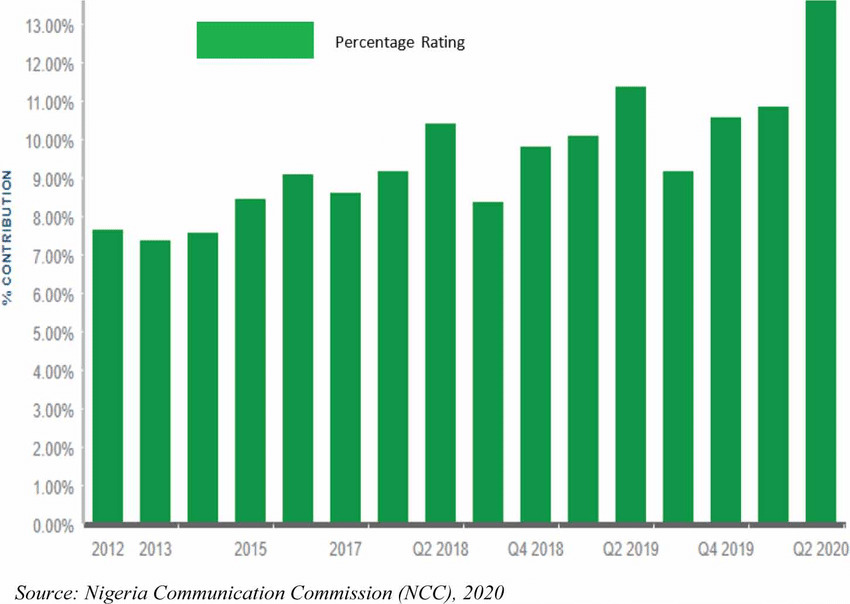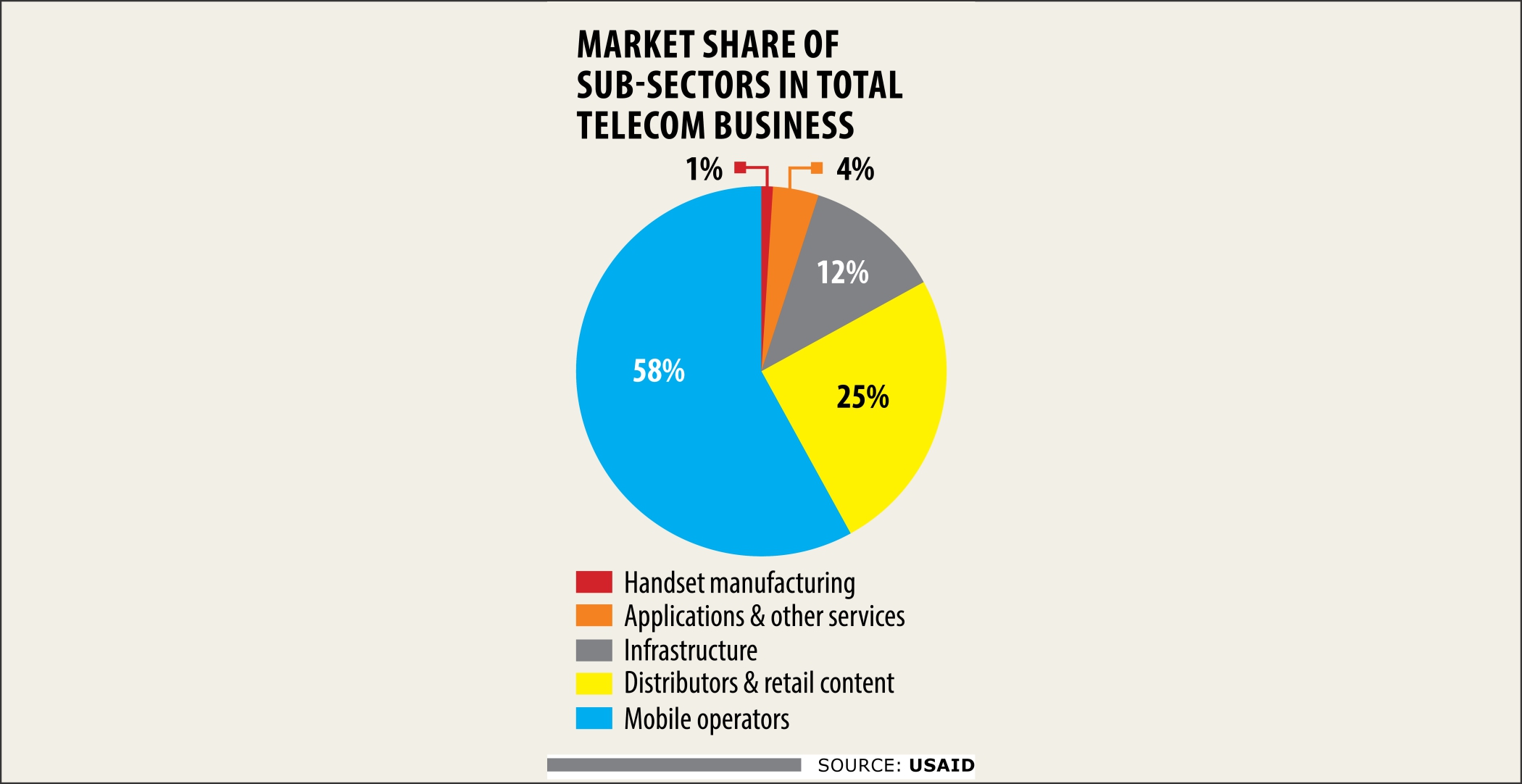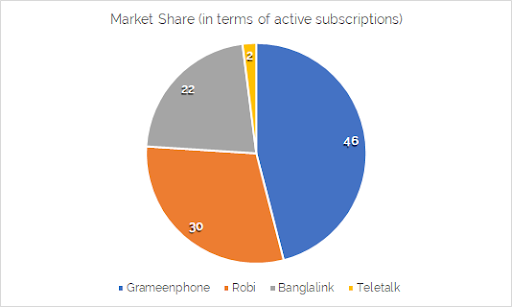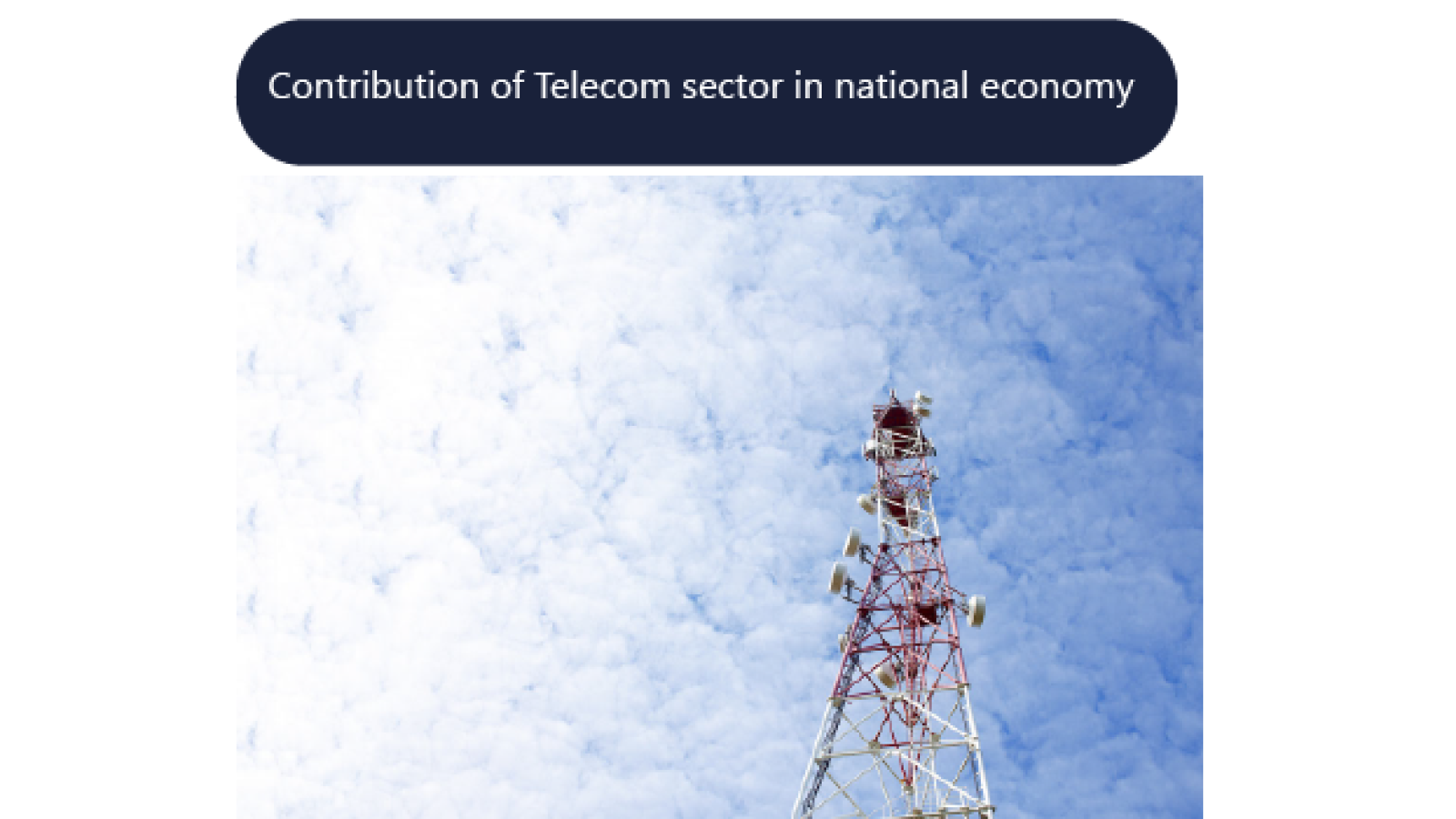Telecommunication, as a gift of modern science which is mainly different from any other traditional infrastructure. From the international market to the domestic market, corporate communication to personnel communication, telecommunication is an excellent way to maintain the continuous and instantaneous flow of sharing information. From the business perspective of economic activities of the modern world, through the communication channel telecommunication has not only significant influences on the economy in term of GDP per capita but also serve many people by creating job opportunities. For the potential role of the telecom, a cutting-edge world too as economy without telecom can’t be thought for one second.

The telecommunication industry around the world achieved a dramatic growth of advancement since 1980s. Since then, first the developed countries around the globe began to make improvement in telecommunication technology to maintain a continuous flow of communication which eventually intensifies their economic activities by providing a more developed platform of communication. Mobile phone entrance is one of the significant explanations for this speculation which in the end adds to the financial turn of events. As a mandatory and progressive part of modern telecommunication, internet is becoming a prerequisite in the development for any economy. Besides, the internet as a vital device of media transmission innovation essentially affects financial advancement as banks, securities exchange, insurance agency, common asset, corporate workplaces all of their exchange stream, records and archives generally depend on the web straightforwardly.
The role of media transmission in financial advancement pulled in the consideration of numerous specialists quite a while back. Telecommunication transmission is remarkably unique in relation to other foundations. Subsequently, it impacts the monetary turn of events. In the developed nations beyond what 90% family can without much of a stretch partake in the media transmission administration due to their higher buying power. Another reality is additionally uncovered that the effect of telecom on the financial development in the agricultural nations is twice bigger than created country. In many studies, it is observed that the web is a strong power that sets out work open doors. However, it makes a few positions unsuccessful the net measure of business valuable open doors is expanded by web memberships. It should be noted that various previous studies there found a positive relationship between telecommunication and economic development.
Dependent Variables-
GDP per capita: GDP per capita is the average income per person in a country. The formula is GDP per capita = Gross domestic products / Total population.
Employment rate: Employment rate can be defined as percentage of the labor force which is employed. It is one of the most vital economic indicators which is implemented to understand the state of the economy. Broadly speaking, the employment rate is a macroeconomic variable that indicates the labor force which is currently employed to the total working age population of specific region or country. In is calculated as Employment rate = (Labor force currently employed / Total population) * 100.Independent Variables.
Tele density: It is the total number of telephone line which includes both fixed telephone line (PSTN) and wireless mobile in a region compared to the number of whole populations in that same region.
Investment in telecommunication: The amount of money which is invested for the for both of the fixed telephone line and wireless mobile phone by the government and private sectors for infrastructural development and operations.
Revenue from telecommunication: The amount of revenues which is earned from the provision of telecommunication services by considering both the governmental and private telecommunication institutions.

Revenue percentage of GDP: It is the percentage contribution by the telecommunication industry through their revenue in the whole Gross domestic products.
Internet users: The total number of internet subscriptions or connections in a region compared to the number of Inhabitants of the same region.
GDP per capita (GPC) and Employment rate (EMP) both of these two dependent variables are both implemented as the multiple simpler variables of an economic development dependent construct. Tele density (TEL), telecommunication investment (TEI), telecommunication revenue (TER), Internet users (INU), and Contribution of telecommunication revenue percentage of GDP (TRG) all of these independent variables are implemented as the multiple simpler variables of the role of telecommunication construct. These independent variables are implemented with the intention to determine economic development.
Obviously, this means that rising in the quantity of web client upgrades by and large GDP per capita. In addition, commitment of media transmission income level of GDP has unimportant positive relationship with Gross domestic product per capita. Based on the relapse investigation, it tends to be obviously proposed that the job of media transmission has a critical impact on the monetary advancement of Bangladesh somewhat. In any case, over all it is obvious in light of earlier consequences of other exploration where telecom job more implies in term of financial improvement of agricultural nation.
Nonetheless, as Bangladesh is a non-industrial nation of third world it is trusted that the media transmission job will show bond in monetary turn of events and the effect will be more escalated than created country which will consequently limit the innovative and practical hole among Bangladesh and other created nations in this time of globalization.
Generally speaking, four out of five investigations that inspect the effects of broadband reception on GDP and Gross domestic product development with country-level information tracks down a positive and massive impact. In opposition to that, the unmistakable outcomes in different studies learn that broadband reception without a doubt causes GDP development. In addition, it is by all accounts fundamental for nations with low broadband infiltration to arrive at a specific entrance level if they have any desire to encounter the biggest potential advantages of broadband. The presence of organization impacts and the frequently little motivators for broadband suppliers to supply rustic regions due to significant expenses and low incomes recommend that public drives and monetary guide ought to be considered as instruments to accomplish expanded broadband turn of events, especially in nations with an enormous portion of the populace living beyond metropolitan regions.

The positive impact mobile broadband services can have on societies and national economies are well documented. Bangladesh is already seeing some of these benefits, but there are still actions the government can take to further improve the lives of its citizens. Bangladesh performs near the provincial midpoints across measurements of portable market improvement, notwithstanding having lower pay than adjoining nations. Outstandingly, Bangladesh is over the local normal in supporter entrance, while just somewhat beneath in portable web and in the extents of 3G and 4G as well as 5G connections. Teletalk Bangladesh Limited, the solitary state-possessed portable administrator, was consolidated in 2004 meaning to guarantee media transmission administrations for varying backgrounds and make fair contest in the area.
The public authority additionally advantaged the administrator with utilizing its SIM cards obligatory in profiting different essential administrations and giving need in the radio recurrence (range) designation for both 4G and 5G, so it can become quicker.
Bangladesh is now the eighth-biggest mobile marketplace in the world in phrases of unique subscribers and the sector now contributes nearly 1.8% or more than of the overall GDP. The broadcast/ Telecommunications area comprises of three fundamental sub-areas: telecom gear (the biggest), telecom administrations (next biggest), and remote correspondence. The significant fragments inside these sub-areas incorporate the accompanying: Wireless interchanges. Interchanges gear.
Government should take more proper steps to enrich this sector and monitor the overall scenario that’s why this sector can contribute highly than as before in our national economy.
Jayed Bin Murshed
Instructor
Department of Telecommunication

